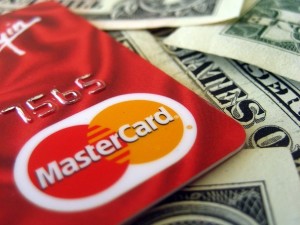Several states in the US that have regulated online gambling, such New Jersey and Nevada could will soon get some much needed support starting April 17th with the anticipated introduction of a new Merchant Category Code (MCC) for regulated online gaming transactions. That means that legit gambling businesses can start accepting major credit cards. That’s huge news for an industry where business is booming and will skyrocket once legitimated payment options are introduced.
MasterCard, Visa, American Express and Discover, for one of the very first times, have now agreed on new MCCs related to Internet gaming.
Three new codes are set to be introduced for online gambling:
- State-run online lotteries (7800)
- State-run online casino games (7801)
- State-run online dog/horse racing (7802)
These codes will allows payments to be processed as legitimate transactions that are regulated. These new codes will join the already existing 7995 code, that will now be saved for designating only unregulated online gaming transactions.
The American banking system has lagged behind the legal system which has accepted and legalized certain forms of gambling which are run by the state.
Despite online gaming being regulated in a few states, which include online lotteries that are available in four states and counting, many national banks and financial institutions have taken a conservative approach when it comes to dealing with the fairly young industry.
There are some major banks, including Bank of America and Wells Fargo, that will continue to block transactions for all forms of online gambling for credit cards, regardless of whether or not they are charged by a regulated or unregulated site. This extremely conservative policy has dampened the growth in the industry. The rates for credit cards’ success charges have improved in recent history since online gaming was launched by several states, but a measurable percentage of declines is just too high for banks to take risks and is the main cited reason as to why traffic is falling at New Jerseys regulated online poker sites.
Comparably, if a huge company like Amazon who does business in the millions daily, were all of a sudden hit by banks declining purchases on their site, what would happen to consumer confidence? If 40% of purchases were declined by the cardholders issuing bank the company would have a crisis on their hands. Credit card issuer and suppliers hesitancy to support gaming transactions has hobbled the industry here in the United States, said Matthew Katz, the CEO of CAMS, a player verification company in the regulated U.S. market.
U.S. Banks are claiming that there is too much risk and too little reward in the process. In the legal U.S. markets, credit card decline rates continue to be exceedingly high, as banks continue to be cautious, they are afraid apparently of running afoul of UIGEA (Unlawful Internet Gambling Enforcement Act of 2006) when it comes to processing online gambling transactions. UIGEA is still enforced and banks might think they are taking unnecessary risks in processing these types of transactions, despite being government backed, legit or not. Many banks fear unanticipated liability beyond UIGEA given the early-stage and unstable nature of the market.
Compounding the problem is that only a small percentage of the U.S. population can access legal online gaming, and only a small percentage of the people with access will use their credit card to gamble online. More clearly put: there simply isn’t enough upside in processing these transactions and taking the risk.
What the new codes changes, and what they wont is as follows: these new codes will alleviate the current issues players in Nevada, Delaware, and New Jersey are having with their credit cards being declined when they attempt to deposit money to play the games and make bets. There shall be instant relief for that gaming population. But, unfortunately, the issue is much bigger and attitudes have to change which cannot be solved with the implementation of a new code alone. Basically, the new MCC codes will give banks and financial institutions more peace of mind and clarity if they decide to process these types of transactions. It gives the process more legitimacy, but the processing is not mandatory just because the codes exist. Banks will be under no legal obligation to process any type of transaction, so they will have to decide on a case by case situation. Individual banks still need to make individual decisions. Online gambling is already stigmatized as a classification of transactions that influential financial institutions have historically stayed clear of. The battle is just beginning to get legitimization for the legal choice a credit card customer might want to make with their money. As despite the availability of the codes to process these transactions, banks still have the ability to decline transactions whether they are coded with the preexisting 7995 code, or the new 7800-7802. Bank of America and Wells Fargo, PayPal and American Express will continue to remain stagnate on the issue and will not process online gambling transactions in the near future.
Its probable and predictable that a number of large institutions will continue to decline processing of any online gambling transactions until the markets become substantially larger and more demanding. Or at least until there’s more clarity as to the legality of online gambling, at the national and federal level.
Ultimately, it’s up to each individual bank/credit card company to decide if processing online gaming transactions is something they want to do and is worth the risk for their clients. That means depositing with a credit card at a regulated online casino could remain a frustrating process or it might soon become the norm if the industry can convince the financial world of it’s imminent success.



